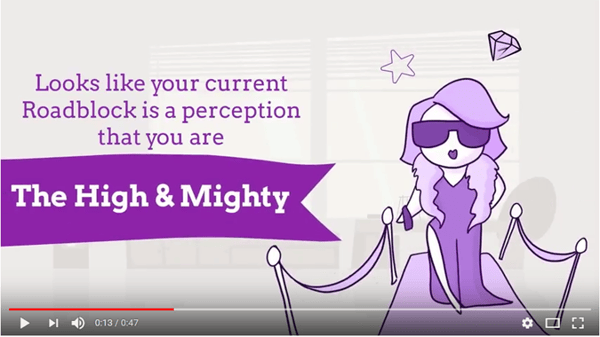Signs of Toxic Leadership Pt 6: Not Communicating With Subordinates
This marks the halfway point in our 12-part series that aims to get down deep to the roots of behaviors that can become toxic in the workplace.
It bears repeating that this series is for people at every level of an organization. As for this week, yes, not communicating with subordinates (and I hate that word) is a "you" problem, not a "them" problem. With your aloofness and self-contained bubble, you're missing how poor communication impacts the workplace.
Addressing these issues early will give you an advantage in your career and improve employee engagement. Don’t be saddled with any of these common career roadblocks. Instead, identify and work on any that might become a problem for you.
Related posts:
- Part 1: The Scrambler
- Part 3: The Climber
- Part 4: The One-Hit Wonder
- Part 5: The Intimidator
- Part 7: The Lone Wolf
- Part 8: The Nuclear Reactor
- Part 9: The Mouse
- Part 10: The Control Freak
- Part 11: The Artful Dodger
- Part 12: The Rebel
Warning Signs of Toxic Leadership: The High & Mighty
Distant. Cool. Detached. Reserved. Holding others at an arm’s length. Never mingling your professional and personal life.
Perhaps you’re a very private person. Or someone who isn’t prone to big, public displays of emotion. Maybe you just like to keep to yourself and don't know how to engage with employees.
Whether real or perceived, you may be seen as The High & Mighty who:
-
Conveys an aloofness and a sense of superiority that suggests others are inferior.
-
Keeps others at an arm’s length; is not interested in forming strong interpersonal bonds.
-
Can be somewhat detached and may seem cold or distant to others.
-
Is dismissive of others’ input and contributions.
-
Puts too much stock into their own opinion, thinking your answers & views are the “right” ones.
In the past, this has served you well or manifested as a positive when:
-
You needed to insulate yourself in a negative or distracting work environment.
-
Needed to work independently and without interruptions.
-
You needed to build, sustain or project an aura of confidence and self-assuredness.
-
To keep others at a distance rather than engaging in ways that might make you feel vulnerable.
-
You did not wish to have your ideas, opinions or answers challenged by others.
Maybe this persona isn’t who you really are. It’s not who you intend to be. It feels unfair to be labeled this way. Nonetheless, if people see you as The High & Mighty, something caused them to see you this way. For them, this is real, and they're seeing firsthand the effects of poor communication in the workplace.
What Can I Do if I Might Be The High & Mighty?
The video above is a fun, visual look at this career roadblock.
Make sure you don't have a blindspot when it comes to your soft skills or style. Take the free, self-paced course called The Essentials of Personal Effectiveness to build transferable skills and improve the quality of workplace interactions.
If you’re encountering a potential blind spot, feel stalled in your career, or are struggling with interpersonal skills in the workplace, you might benefit from working with a certified executive coach. Most senior-level executives have worked with a professional coach at some point in their career. Check out this Forbes article for more about the benefits of coaching.
Ultimately, YOU are responsible and YOU are in control of your choices about how to lead and how to interact with others in the workplace. Now that you’ve got awareness, it’s time to take action.
If you are, indeed, The High & Mighty, here are some immediate actions you can take to change others’ perceptions and exhibit these behaviors less frequently:
-
Become more approachable at work. Learn how to engage employees so others will welcome you and seek you out, too.
-
Make it clear that you view others as equal partners who can make contributions you value.
-
Interact more frequently with people. Initiate connections and dialogue.
-
Display more vulnerability and openness to accept feedback and input from others.
If you’re wondering whether or not it’s worth it to make these changes, you should know that there is an impact to being perceived as The High & Mighty. There’s an impact on people you work with.
There are also consequences for you, including:
-
The biggest risk you take when you allow High & Mighty behaviors to go unchecked is that people will stop trying to connect with you. You may respond by distancing yourself even more, projecting a (forced) nonchalance about their rebuffs. It becomes a vicious cycle.
-
The more indifferent you act, the more conceited you seem. It appears to others that you can’t be bothered with them and look down on them. Soon, you are no longer getting input from a variety of sources. The answers and contributions you can provide are limited by your reduced circle.
-
You also run the risk of not being given opportunities to learn and grow. The outward behaviors seem to suggest that you are “above” feedback, counsel, development or stretch assignments. You may insulate yourself so much that others assume you are just not interested in anything new or different.
This choice is yours. Choosing to deny, ignore or embrace your Career Roadblock characteristics are all legitimate choices. You don’t have to change a thing.
On the other hand, if these behaviors or perceptions are preventing you from reaching your goals, it’s also a legitimate choice to modify what you’re doing.
Either way, put yourself in control. Be aware of the perception, your choices surrounding that perception, and the impact of being perceived in this way.
How Can I Learn More About This Roadblock (and Others Too)?
The High & Mighty is one of 12 behavior sets that can become career roadblocks. When others are observing the issues with someone who is stuck and has these blind spots, they frequently use terms to describe these roadblocks (e.g. “control freak” or “dinosaur”).
You can learn about all the career roadblocks that lead to toxic leadership by following this blog series.


